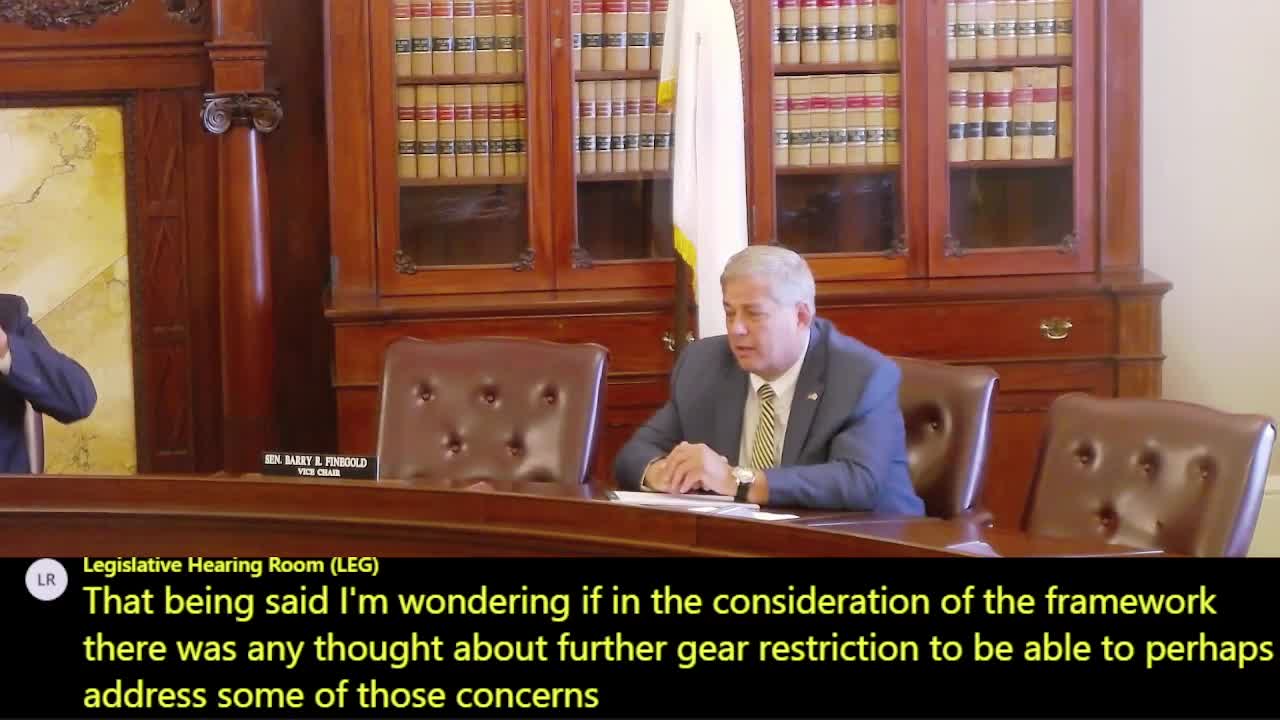Marine Council Explores Scallop Fishery Timing and Juvenile Cod Protections
July 30, 2025 | 2025 Legislature MA, Massachusetts
This article was created by AI summarizing key points discussed. AI makes mistakes, so for full details and context, please refer to the video of the full meeting. Please report any errors so we can fix them. Report an error »

The Senate Committee on Intergovernmental Affairs convened on July 30, 2025, to discuss critical issues surrounding marine fisheries management, particularly focusing on scallop and cod populations in Massachusetts waters. The meeting highlighted the ongoing challenges and strategies related to fishery management, emphasizing the importance of timing and area restrictions to optimize yields while protecting juvenile cod.
The discussion began with an overview of the need to avoid overlapping fishing periods that could adversely affect juvenile cod. Committee members expressed the necessity of balancing fishing activities to maximize scallop yields while ensuring the protection of marine habitats. The conversation underscored the complexity of managing small ocean regions, where larger areas could lead to potential closures elsewhere as part of mitigation efforts.
A significant point raised was the rotational nature of the management plan, which may allow for limited openings in coordination with other closures. This approach aims to balance fishing pressure effectively. Committee members expressed hope that the council would revisit this issue, indicating a desire for continued engagement in the decision-making process.
The meeting also addressed the apparent contradiction of having a relative abundance of scallops while experiencing a decrease in biomass. Experts explained that recent recruitment events had led to an increase in the number of juvenile scallops, but these were not yet large enough to contribute significantly to biomass. This situation raises concerns about the time to maturity and its implications for future recruitment into the fishery.
The committee concluded with a commitment to stay informed on developments in fishery management and to engage with stakeholders as the council prioritizes future actions. The discussions highlighted the ongoing efforts to balance ecological sustainability with economic viability in Massachusetts' marine fisheries.
The discussion began with an overview of the need to avoid overlapping fishing periods that could adversely affect juvenile cod. Committee members expressed the necessity of balancing fishing activities to maximize scallop yields while ensuring the protection of marine habitats. The conversation underscored the complexity of managing small ocean regions, where larger areas could lead to potential closures elsewhere as part of mitigation efforts.
A significant point raised was the rotational nature of the management plan, which may allow for limited openings in coordination with other closures. This approach aims to balance fishing pressure effectively. Committee members expressed hope that the council would revisit this issue, indicating a desire for continued engagement in the decision-making process.
The meeting also addressed the apparent contradiction of having a relative abundance of scallops while experiencing a decrease in biomass. Experts explained that recent recruitment events had led to an increase in the number of juvenile scallops, but these were not yet large enough to contribute significantly to biomass. This situation raises concerns about the time to maturity and its implications for future recruitment into the fishery.
The committee concluded with a commitment to stay informed on developments in fishery management and to engage with stakeholders as the council prioritizes future actions. The discussions highlighted the ongoing efforts to balance ecological sustainability with economic viability in Massachusetts' marine fisheries.
View full meeting
This article is based on a recent meeting—watch the full video and explore the complete transcript for deeper insights into the discussion.
View full meeting
